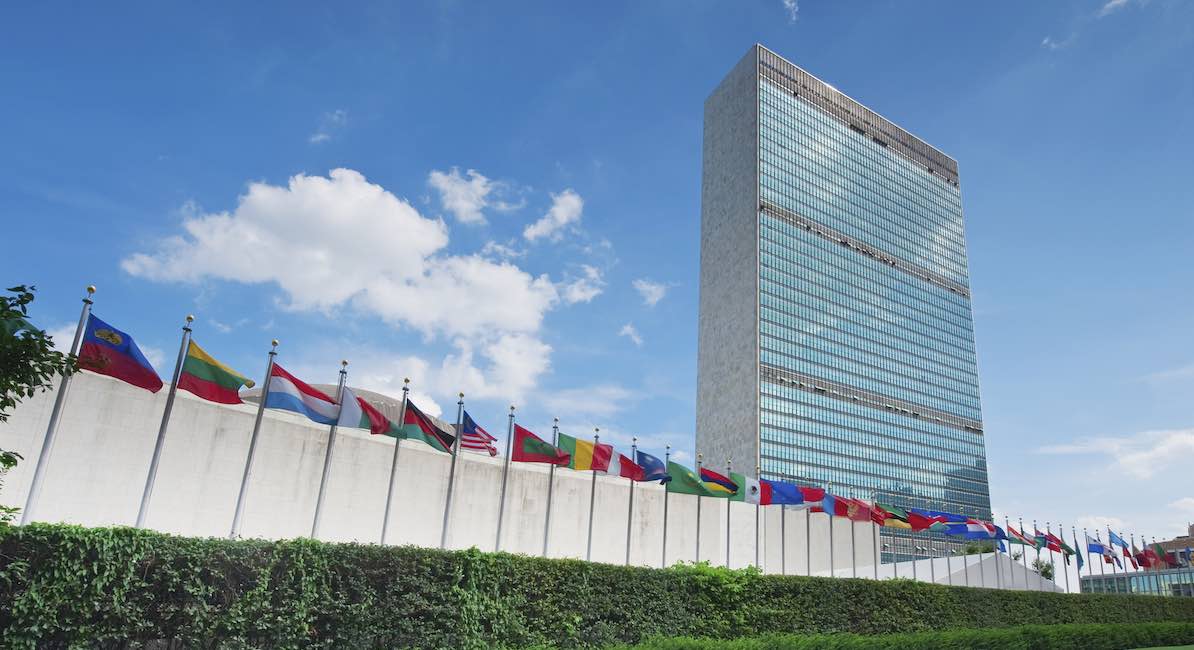(National Review) The United Nations once again has failed to produce an agreement on COVID-19 relief, a massive failure on the part of the U.N. system with regard to the urgent topic of nutrition during the pandemic.
COVID-19 has brought a series of difficulties to people both in the U.S. and around the world, but a critical issue that has not garnered sufficient attention is an exacerbated food shortage, particularly in developing countries. One need only look at Yemen, where 10 million people are at risk of imminent starvation, to understand the vital importance of the U.N.’s voice on this issue.
The U.N. Commission on Population and Development met virtually throughout June to negotiate a text on nutrition and COVID-19. Rather than overcome disagreement in the interest of urgent action, the text was withdrawn on Monday due to continued controversy over abortion. Luxembourg, which is in charge of the negotiation process, decided to withdraw the entire text rather than compromise to reach a plan for COVID-19 relief that did not include abortion.
This withdrawal reveals that the entrenched ideology of promoting elective abortion supersedes all humanitarian interests. In response to this emphasis on abortion — a shameful prioritization entirely unrelated to the theme of COVID-19 and nutrition — the U.S. and other countries insisted that the text remain focused on the assigned theme.
READ: United Nations gives China seat on Human Rights Council, despite abuses and genocide
It is all too easy to blame the Trump administration’s penchant for multilateral rejection and scapegoat the U.S. for the commission’s failure to produce a result. But the reality is that this process — and the prospect of a unified U.N. response to the problem of food shortages — was sabotaged by the U.N. Fund for Population’s (UNFPA) myopic preoccupation with abortion. In fact, the commission, which sets the agenda for UNFPA, has failed four out of the last six years due to the objections from several governments to the group’s aggressive pro-abortion agenda.
In recent years, the U.S. has become one of the leading reasoned voices at the U.N. and has been the standard-bearer when it comes to protecting unborn human life. In particular, the U.S. has insisted that the abortion debate not contaminate the COVID-19 response, and it was joined in opposing the commission text by a cross-regional group of countries that emphasized a lack of protections for sovereignty. That move was rejected by the European Union and Luxembourg.
Successful development assistance is contingent on a corresponding respect for state sovereignty, needed now more than ever as evidence mounts that the U.N. is using COVID-19 to promote abortion. While it’s true that many countries are dependent on U.N. assistance for their essential needs and sometimes survival, this in no way legitimizes the organization’s attempts to change each nation’s laws and culture. Yemen, for example, was an initial recipient of U.N. COVID-19 assistance, and deservedly so, and some fear that this vital assistance will be misdirected as a result of the U.N.’s promotion of abortion, even during humanitarian emergencies.
Abortion is illegal in Yemen, except in the case of life-saving interventions for the mother. Nonetheless, abortion is part of the COVID-19 response plan in the UNFPA’s Minimum Initial Services Package (MISP), which includes box kits with “reproductive health materials” for women and girls. The kits contain a variety of abortion-related items such as vacuum extractors and cranioclasts for crushing fetal skulls. In blatant violation of national law, the UNFPA is currently raising $100.5 million for its “reproductive health service” (i.e. abortion) outfits in Yemen.
Ecuador, where abortion is illegal with limited exceptions, likewise was presented with an $8 million COVID-19 relief package from the U.N., which includes the requirement that Ecuador implement “safe legal abortion,” in addition to the MISP kits. Pro-life groups have mounted significant resistance, calling on the government to reject this “humanitarian blackmail” at the hands of the U.N.
As the commission has failed more times than not in recent years, there is now a serious argument to be made that it should be disbanded in its entirety, dealing a serious blow to the UNFPA. Its representatives are known to conduct all-out assaults on governments, threatening the jobs of diplomats and threatening to withhold development aid that many governments depend on. When seen in this light, an end to the commission would bring serious relief for many beleaguered governments.
The failure of the commission points to a much greater failure on the part of the U.N. to prioritize genuine development assistance, a significant loss for developing countries. For as long as the commission persists, however, it is an important battleground where the U.S. and other countries can exercise their rights to contain the bureaucracy.
On the one hand, this is a victory for governments and for their untiring diplomats who refuse to capitulate to U.N. coercion. At the same time, it marks a missed opportunity for unity and displays tragic disregard for the urgent needs that the world expects the U.N. to handle.
Elyssa Koren is the director of United Nations advocacy in New York City for Alliance Defending Freedom International.
Editor’s Note: This article was published at National Review and is reprinted here with permission.
“Like” Live Action News on Facebook for more pro-life news and commentary!







